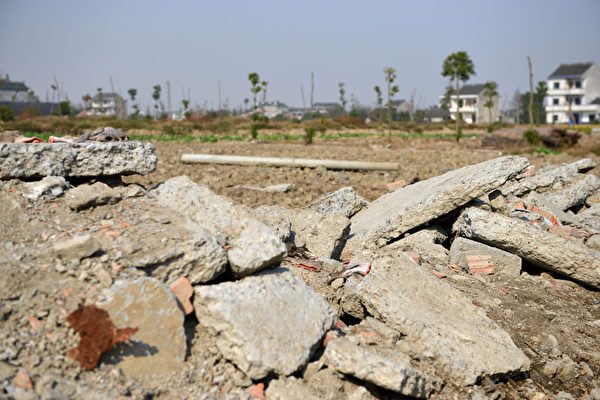The Chinese Ministry of Finance announced on November 18th that the revenue from the transfer of state-owned land use rights (land sales) in China for the first 10 months of this year amounted to 2.6971 trillion yuan, a decrease of 22.9% compared to the same period last year. Industry experts have pointed out that the land market has not yet reached a stable bottom.
According to the latest data from the Ministry of Finance of the Communist Party of China, the revenue from land sales in China from 2019 to 2024 for the first ten months of each year were 5.3335 trillion yuan, 5.5965 trillion yuan, 5.9371 trillion yuan, 4.4027 trillion yuan, 3.4992 trillion yuan, and 2.6971 trillion yuan. The growth rates of revenue from state-owned land use rights transfers were 6.9%, 10.1%, 6.1%, -25.9%, -20.5%, and -22.9% year-on-year, showing a trend of expanding declines in land revenue.
In response to this, Xie Yifeng, the director of the China Urban Real Estate Research Institute and a renowned economist, analyzed to mainland media on November 20th that the main reason for the sharp decline in land sales revenue is that real estate companies are very cautious in land acquisitions, with most of them halting land acquisitions and focusing more on reducing inventory, completing projects, and risk prevention. Additionally, land premiums are paid in installments, leading to a decrease in land supply, land auctions with no buyers, and many transactions happening at the minimum price. Furthermore, the speed of land acquisitions by urban investment, state-owned enterprises, and central enterprises has slowed down, resulting in a decrease in transaction volume.
Xie Yifeng believes that due to factors such as declining sales of commercial housing, tight funding for real estate companies, high inventory of commercial and land properties, and upcoming debt repayment deadlines, the overall trend of the Chinese land market continues to show a narrowing and improving trend, indicating that the land market has not yet stabilized.
Statistical data from the Ministry of Finance of the Communist Party of China shows that from 2011 to 2023, land sales revenue in China were 3.3166 trillion yuan, 2.8422 trillion yuan, 4.125 trillion yuan, 4.294 trillion yuan, 3.2547 trillion yuan, 3.7457 trillion yuan, 5.2059 trillion yuan, 6.5095 trillion yuan, 7.7914 trillion yuan, 8.4142 trillion yuan, 8.7051 trillion yuan, and 6.6854 trillion yuan.
During the years 2011 to 2023, the growth rates of national land sales revenue were 22%, -18.6%, 45%, 3.2%, -21.6%, 19.3%, 40.7%, 25%, 11.4%, 15.9%, 3.5%, -23.3%, and -13.2%. The data indicates a trend of initially high and then declining growth rates in land sales revenue, mirroring fluctuations in the land, real estate, and financial sectors.
Furthermore, data released by the Finance Ministry shows that from January to October, the budget revenue from government funds of the Communist Party of China was 3.5462 trillion yuan, a 19% decrease compared to the same period last year. Looking at the central and local levels separately, the budget revenue of government funds at the central level was 356.3 billion yuan, an increase of 4.3% year-on-year, while the budget revenue of government funds at the local level was 3.1899 trillion yuan, a decline of 21%.
As land finance has always been one of the main sources of revenue for the Communist Party authorities, the significant decline in land sales revenue has raised social concerns.
One user on Tencent stated: “With this data, there are still a lot of manipulative data, like land acquired by state-owned enterprises and central enterprises, as well as land acquired by local urban investment companies, so the actual purchases for development are likely significantly lower.”
Another online user expressed: “If a country relies solely on land sales for revenue, the future looks bleak.”
One commenter named “Li Gong” remarked: “If our country only sees land finance revenue as the main income for the national budget, our country cannot prosper and develop!”
A user under the alias “Idle Old Man” also commented: “It’s true that relying on land sales can sustain for a period, but it is not a long-term solution.”

